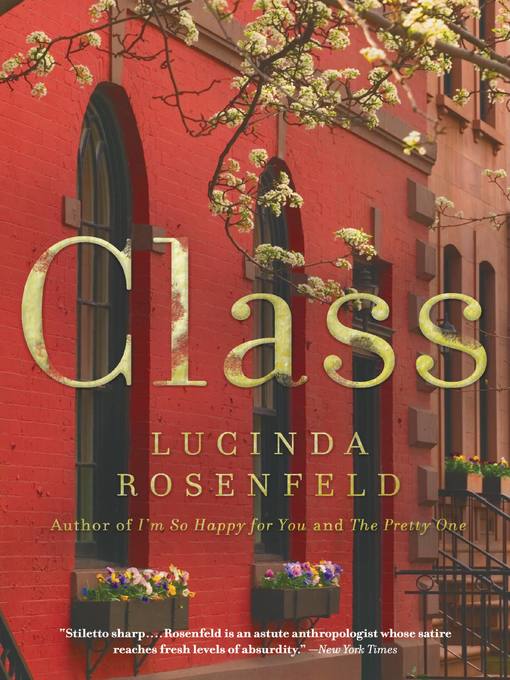
Class
کتاب های مرتبط
- اطلاعات
- نقد و بررسی
- دیدگاه کاربران
نقد و بررسی

October 17, 2016
On the surface, Karen Kipple has much to be content about. But despite her job as a fund-raiser at a nonprofit in New York, a spacious condo that she and her hardworking husband own thanks to some inherited money, and a bright third-grade daughter, Ruby, Karen isn’t exactly happy. At first, it seems clear that her dissatisfaction stems from her insistence on white-liberal perfection: avoidance of artificial chemicals in foods, commendable work, and Ruby’s attendance at a racially diverse neighborhood school, Constance C. Betts Elementary. But when a classmate of Ruby’s transfers out of Betts to a school with mostly privileged white students, Karen’s ideals begin to crack. Karen duplicitously moves Ruby to the wealthier school, launches an affair with a billionaire donor, and breaks the law in what she describes as “the most selfless act of her nonprofit career.” The story is uncomfortable and excellently handled by Rosenfeld (I’m So Happy for You); it invites questions about faithfulness and philanthropy, one’s obligation to those less fortunate, and what it means to be middle-class in an unequal society. Agent: Maria Massie, Lippincott Massie McQuilkin.

October 15, 2016
This take-no-prisoners satire puts politically correct urbanites in their place for real.Karen Kipple and her husband, Matt, both career activists in the nonprofit sector, have righteously enrolled their daughter in their zoned public elementary school, where "the white population...hovered around 20 percent." However, Karen, like some other white parents, is concerned that she's sacrificed quality education for diversity. Among other dubious accomplishments, her daughter can recite the wedding date of Coretta and Martin Luther King--because "every month was Black History Month--except when it was Latino History Month." A scuffle on the playground between a Jayyden and a Maeve further divides the parents along racial lines: "What that kid needs is a serious whupping" versus "With all due respect, violence is not the answer to violence." Karen is so beached in the mud of responsible domesticity that it has affected even her dreams, "the majority of them so prosaic that she sometimes felt embarrassed when she woke up." But this pill of a woman, depicted in deadpan, grimly hilarious detail, is about to cut loose--starting an extramarital affair with a billionaire she's canvassing for her nonprofit, stealing gas bills out of the trash so she can move her daughter to a whiter public school, then performing an insane Robin Hood maneuver that could land her in that most racially imbalanced environment of them all. Rosenfeld (The Pretty One, 2013) depicts Karen with such pitiless disdain that it's a welcome surprise when the plot gives her a chance at redemption. From its James Baldwin epigraph--"White people cannot, in the generality, be taken as models of how to live"--to the final pages, in which Karen decides not to inquire about the fate of young Jayyden to avoid appearing "like one of those well-meaning, college-educated white liberals who fetishize the deprivations of the underclass," this book takes dead aim and doesn't miss. Comin' at you "with a copy of Karl Marx's Capital in one hand and a raisin bagel in the other." Right on, Rosenfeld.
COPYRIGHT(2016) Kirkus Reviews, ALL RIGHTS RESERVED.

Starred review from November 15, 2016
Karen Kipple suffers mightily from liberal guilt. The white, upper-middle-class New Yorker is mom to first-grader Ruby, who attends the neighborhood public school. Karen is smugly proud of the fact that she keeps Ruby at Betts, where she is in the minority, instead of pulling strings to send her to nearby Mather, where the student body is almost all white and wealthy. But Karen, a fund-raiser for a children's hunger charity (something else she's self-satisfied about), simultaneously pats herself on the back for her inclusiveness while fretting over the increase in racial incidents happening at school. After a friend removes her daughter from Betts over an altercation, a chance moment with a rich person's garbage gives Karen the opportunity to falsify her way into the Mather districtand this act of defiance sends Karen's entire life spiraling out of control. Karen is a flawed and unlikable character, to be sure, but a certain sector of readers will identify with hercringing all the while. Rosenfeld's sharp and searing look at race and class in urban America will make quite an impression on readers and will become an excellent book-discussion selection. It will make readers uncomfortable, but for all the right reasons.(Reprinted with permission of Booklist, copyright 2016, American Library Association.)

























دیدگاه کاربران